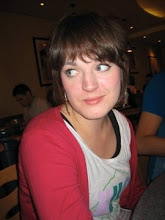# Anushka Asthana and Charlie Francis-Pape
# Sunday September 30 2007
A letter has been sent to every UK school warning sixth-form students that if they cheat on their university applications by copying material from the internet, they will be caught.
The Universities and College Admissions Service has revealed that every application submitted for entry in 2008 will be scrutinised for lifted material. Ground-breaking 'plagiarism-detection' technology will be used for the first time on more than half a million forms, many of which are being prepared by pupils at the moment.
Ucas has found that large numbers of teenagers cheated by copying material from websites offering advice on how to apply. A study of 50,000 forms concluded that one in 20 pupils lifted text for their 'personal statements', a compulsory part of the application where candidates write about themselves and their interest in a subject. Last year 800 medical students all lifted chunks of text from the same site; 234 candidates included the same anecdote saying their interest in chemistry began when, at eight, they burnt a hole in their pyjamas. There was a similar sense of deja vu when 370 applications from would-be doctors began with 'a fascination for how the human body works...' and 175 wrote of their 'elderly or infirm grandfather'.
This year Ucas is warning students that cheating could damage their chances of winning a university place. 'A personal statement should be the student's own work,' said Steven Harrop, technology and strategy manager at Ucas said. 'We found that approximately 5 per cent of applications had some element of plagiarism, from a very low level through to candidates who cut and pasted the whole thing. The new system, Copycatch, will compare every application submitted for entry next year with thousands posted on websites and 1.5 million from previous years. If three sentences or more - 10 per cent of the statement - appear to have been copied, the form will be passed to staff for further scrutiny.
Among the first few applications to reach Ucas there is already a personal statement with a '96 per cent match', meaning it was almost wholly copied.
The temptation to cheat is large. Typing 'writing a personal statement' into Google brings up more than 30,000 hits, many offering advice and 'model' examples. On one, candidates can download up to 60 personal statements for £5.99, while another offers 'the essential guide' for £12.99. These websites have become big business because universities are increasingly using personal statements to differentiate between students. One 20-year-old media student at the University of Sussex admitted she was so desperate to get it right that she browsed the internet for hours. 'I thought other people's might give me more of an idea about what to write,' she said.
Universities and headteachers have welcomed the strict new regime. 'We support Ucas in using the available technology,' said John Dunford, leader of the Association of School and College Leaders.
Thursday, 5 February 2009
Subscribe to:
Post Comments (Atom)

No comments:
Post a Comment